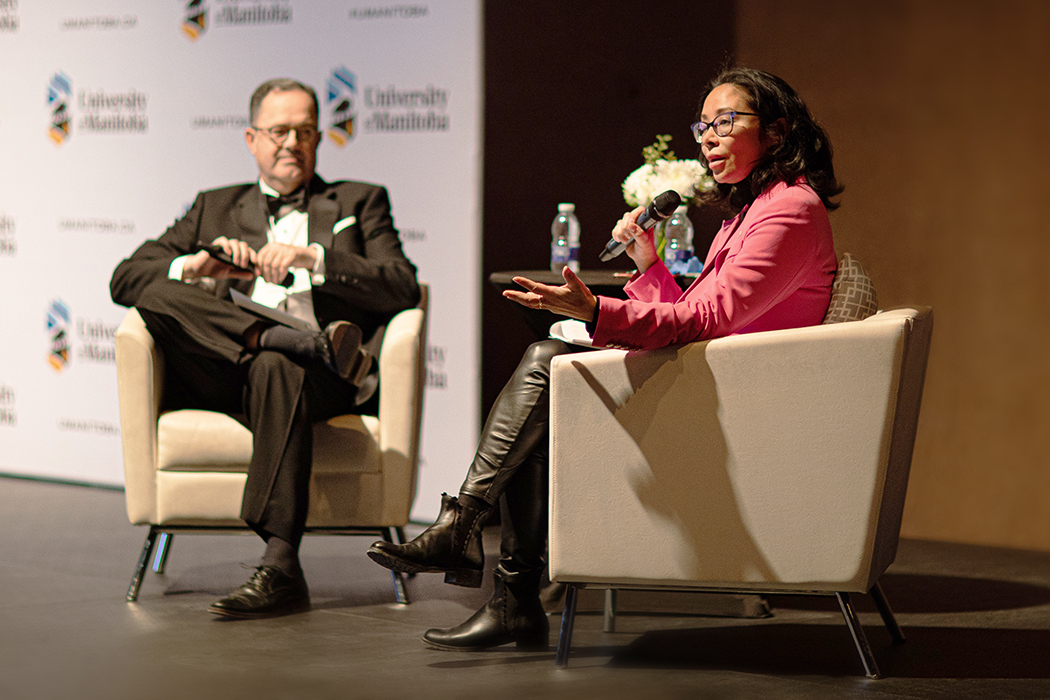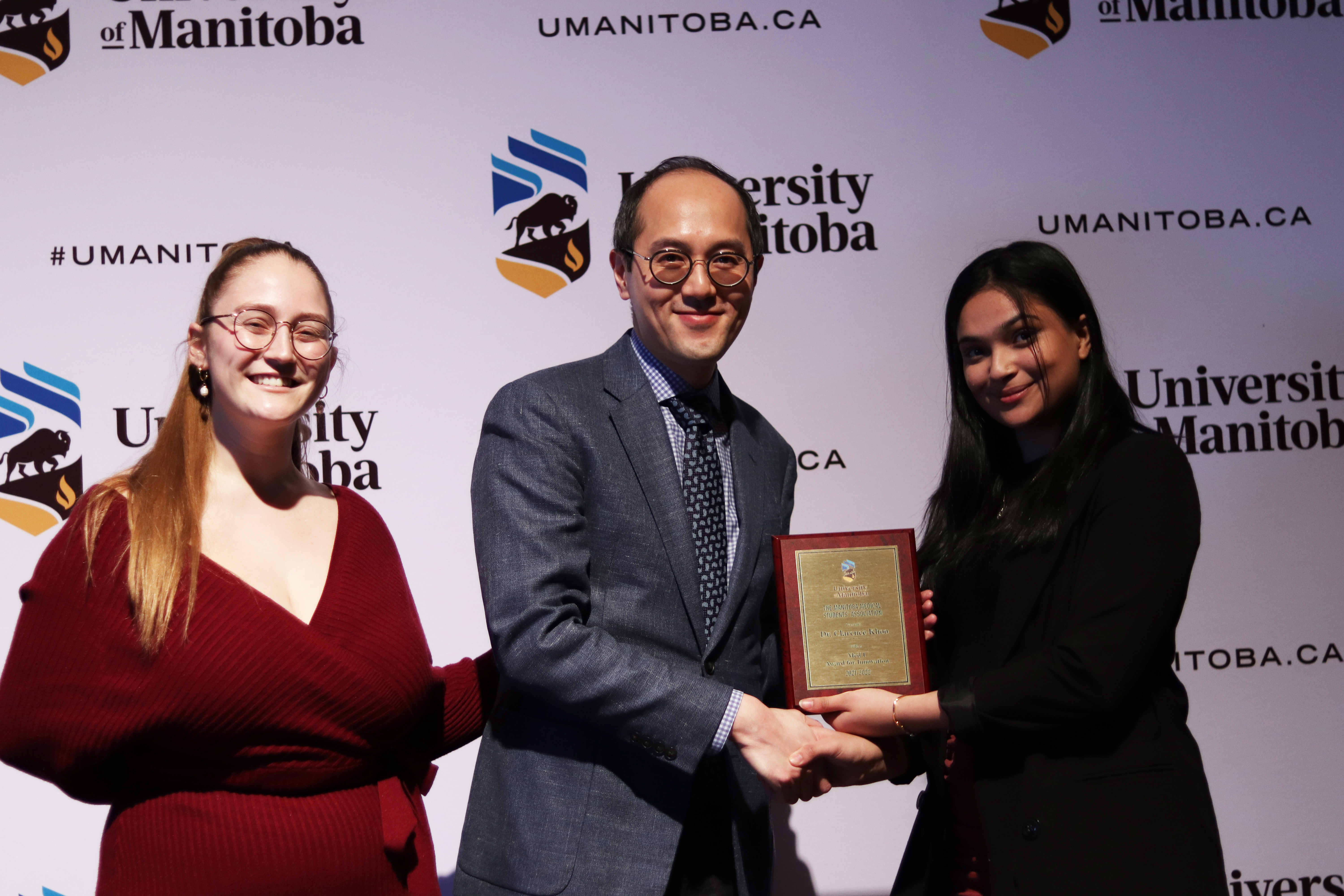
Dr. Peter Nickerson and Senator Gigi Osler in conversation at the Max Rady College of Medicine awards evening
Senator urges current and future doctors to champion equity, diversity
‘I see that health advocate in all of you’
“You are stronger than you think,” Senator Gigi Osler told an audience of medical students and physicians at a recent UM awards evening.
“Even when the outside world is telling you, ‘No, you’re not capable,’ you are,” said the ear, nose and throat surgeon, a trailblazer who has recently taken on a new role in Ottawa as an independent senator representing Manitoba.
Osler, a 1992 UM alumna in medicine, is an assistant professor of otolaryngology at the Max Rady College of Medicine. In 2018, she became the first racialized woman to serve as president of the Canadian Medical Association (CMA).
On Feb. 15, Osler was the special guest at the Teacher Recognition and Manitoba Medical Students’ Association Awards evening at the Canadian Museum for Human Rights, attended by 125 medical students, teachers, faculty and deans. She reflected on her career in conversation with Dr. Peter Nickerson, dean of the Rady Faculty of Health Sciences.
Osler recalled that as president-elect of the CMA, she felt panic at having to be interviewed on CBC Television’s Power & Politics with only an hour to prepare.
After that, she kept being pushed out of her comfort zone. And despite suffering from imposter syndrome, she kept growing as a leader. “Every single day as CMA president, I was asked to do something I had never done before that terrified me,” she said.
Beginning in 2017, Osler recalled, the #MeToo movement catalyzed a discussion of gender-based bias, abuse and harassment in the medical profession. Women in medicine wrote to her or approached her at events to share their negative experiences.
“I thought to myself, we have to talk about this.… If we don’t deal with it, it’s harming physicians, it’s harming residents, it’s harming medical students and it’s harming patients.”
The #MeToo discussion evolved into broader conversations about racism and many other forms of discrimination, Osler said. She went on to lead the development of the CMA’s first-ever policy on equity and diversity and to advocate for Canada’s physician workforce to reflect the diversity of the population.
The senator urged the audience to help transform medical culture and to take action against the factors that negatively influence health at the population level, such as poverty and racism.
“We have to be advocates for social justice, racial justice, equity and social change,” she said. “Now, having said that, I’m not saying everyone here has to run for politics. I’m not saying everyone here has to become CEO of Shared Health.…
“In every single interaction you have with a patient, you can be an advocate for them. In every interaction with the public, with our colleagues, we can be advocates. You can do it at the micro level … or at the macro level; the system level. I see that health advocate in all of you.”
Osler, who was appointed to the Senate of Canada about five months ago, said she and other senators with health-care backgrounds are working to influence reform of the health system.
Doctors are well-equipped for political roles, she said, because they are trained to synthesize large quantities of information, think critically, collaborate and make difficult decisions.
“I think this country needs more health-care professionals in politics, whether it’s federal or provincial,” she said. “We need to be political to drive the social change that is needed to improve health for patients, populations, and change the health-care system.”
The awards evening included the presentation of 21 Teacher Recognition Awards, voted on by medical students to honour teaching excellence in categories such as innovation, inspiration, mentorship, patient advocacy and small-group teaching.
Four awards were also presented to medical students who have distinguished themselves in the categories of citizenship, global health, community service and leadership.
The teaching and student award winners are listed on the Max Rady College of Medicine website.







